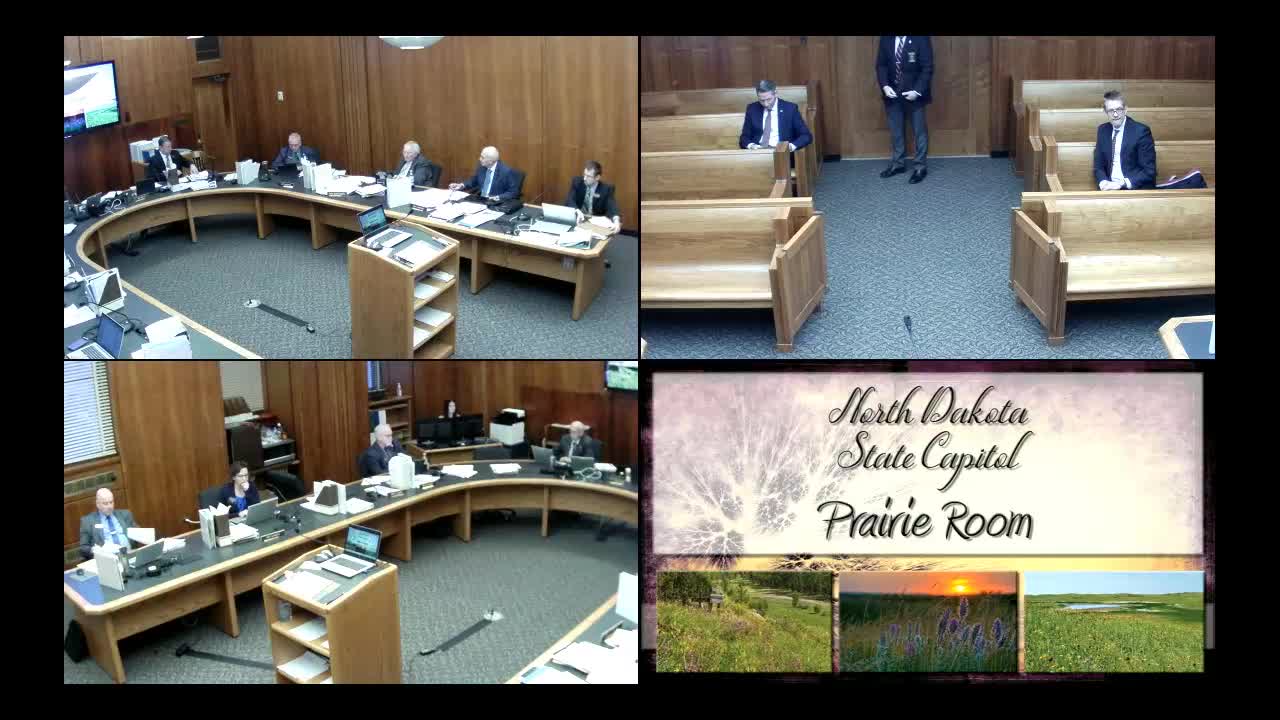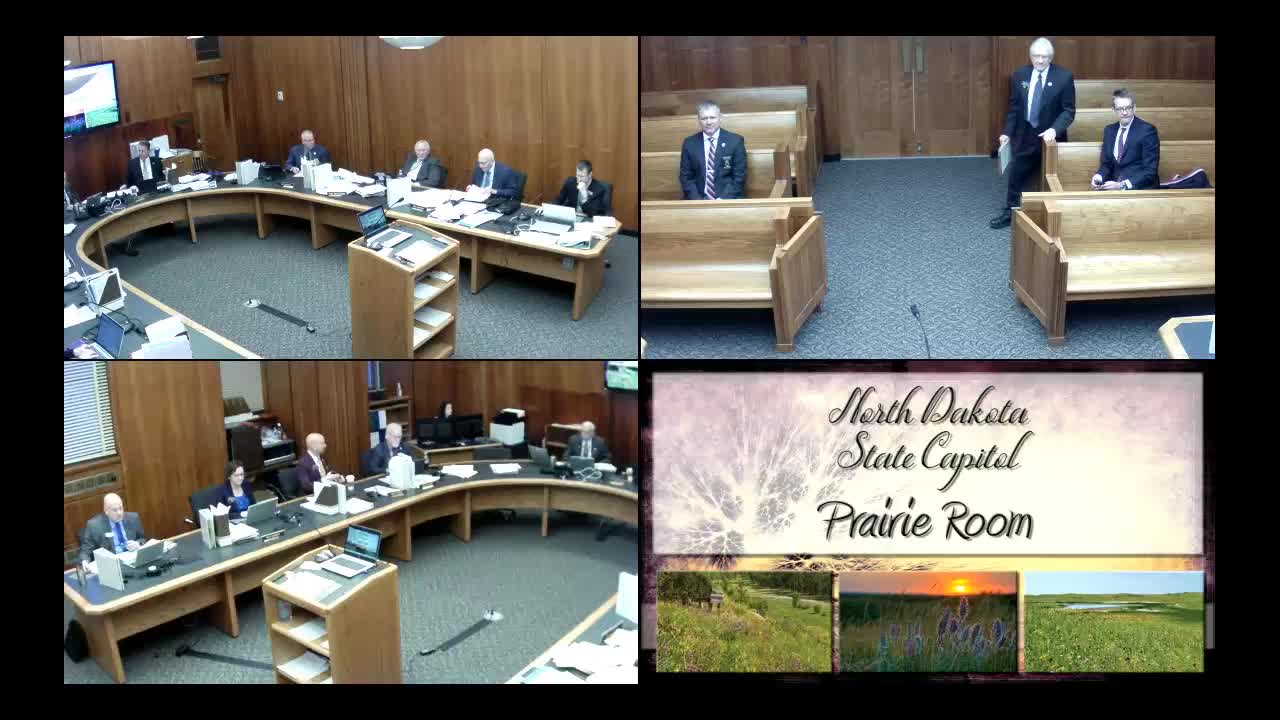Article not found
This article is no longer available. But don't worry—we've gathered other articles that discuss the same topic.

Appropriations committee details attorney general budget: victims advocates, crime-lab staff, PIO and litigation fund among priorities

Appropriations committee recommends 'do not pass' on bill to fund two BCI cybercrime agents for Grand Forks region

